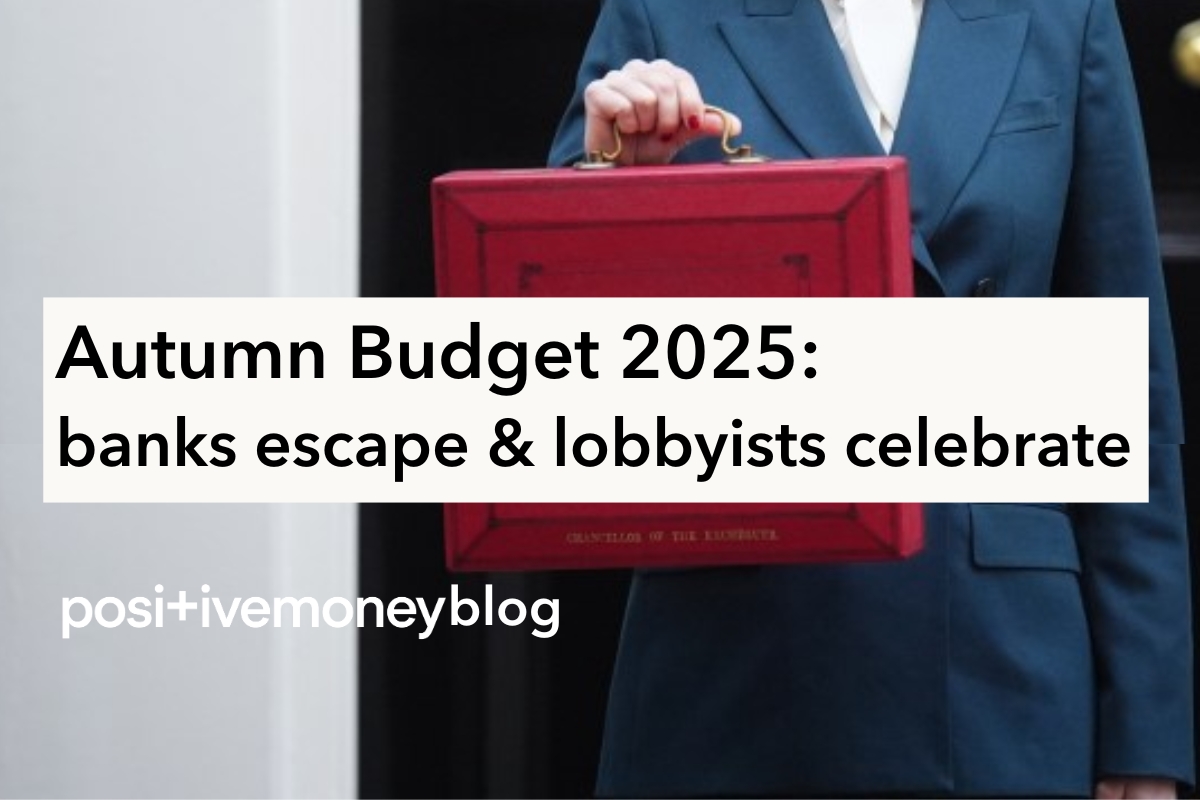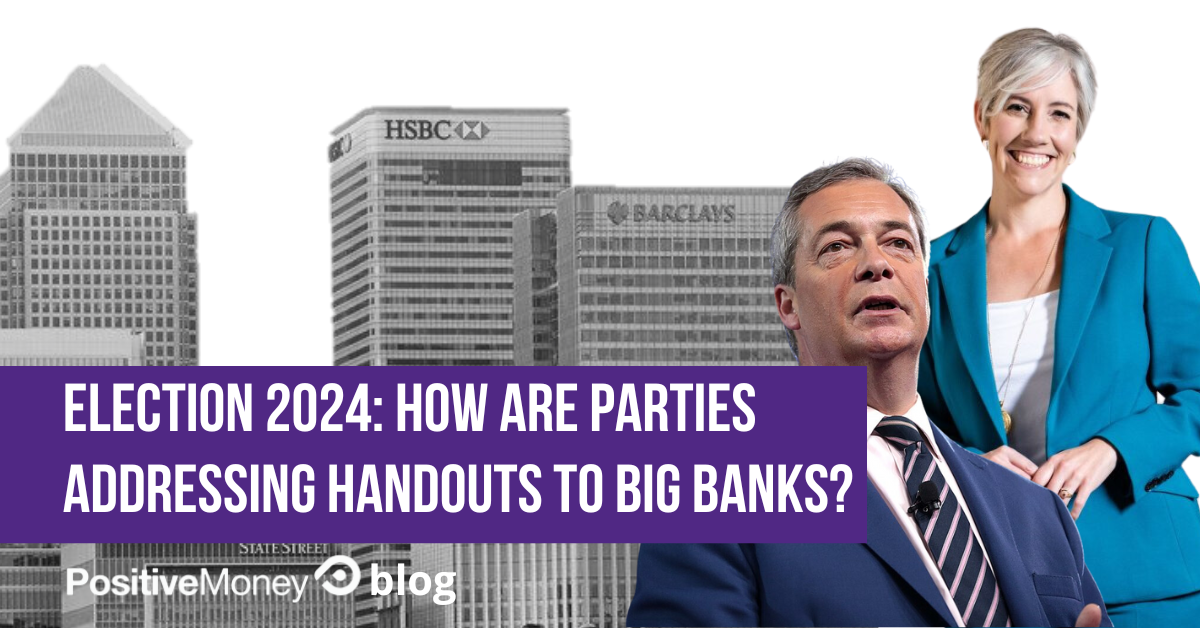
Finance and DemocracyUK
26 November 2025
It might seem surprising that one of the policies that made the most headlines from the Reform Party’s manifesto consists of a technical change to the way the Bank of England conducts monetary policy. But this is an issue that has huge implications for whoever wins the next election.
As things stand, the UK government is due to pay tens of billions of pounds a year to the Bank of England (BoE) over the coming years to cover losses from the Bank’s Asset Purchase Facility (APF) - the vehicle through which it carried out quantitative easing (QE). The Treasury is obliged to foot the bill for these losses, according to the terms of an unpublished indemnity agreed with the BoE when QE was introduced in 2009. It spent £44.5 billion doing so last year (a figure eerily similar to the £44.3 billion pre-tax profits the big four banks reported last year) and is set to shell out another £34.5bn this financial year. To put it into context, the government’s total spending on transport and long-term care last year was £43.6 billion and £28.1 billion respectively,
These losses are coming from two sources: first, capital losses from the BoE selling bonds for less than it bought for them as it undertakes quantitative tightening (QT), and second, losses from the interest it pays on commercial banks’ holdings of central bank reserves being higher than the income received from the bonds backing them. As well as calling on the BoE to stop QT, the Reform Party’s manifesto claims it would save £30-40 billion per year if the Bank of England stops paying interest on central bank reserves, which the party has suggested could be used to fund tax cuts.
Reform claims other central banks aren’t doing this. This isn’t really true - since central banks created more reserves than commercial banks needed through QE in the aftermath of the 2008 crisis, it has become the norm to pay interest on reserves to implement monetary policy. What Reform may be referring to is the way other central banks, such as the European Central Bank, don’t pay interest on minimum required reserves (the UK doesn’t have reserve requirements, but in the Eurozone this is only a small fraction of reserves), or how other central banks, such as the US Federal Reserve, don’t require the public to foot the bill for losses. As a recent BoE working paper finds, the UK is somewhat of an anomaly in the way the public are paying for central bank losses.
There is indeed scope to significantly reduce the cost of the BoE’s policies to the public. Both the New Economics Foundation and former BoE deputy governor Sir Paul Tucker have put forward credible proposals to save tens of billions of pounds through ‘tiered reserves’, with the central bank only paying interest on a portion of reserves. There is a growing consensus in favour of such policies, which have received the backing from former Prime Minister and architect of BoE independence Gordon Brown, as well as commentators such as Daniela Gabor, Toby Nangle and Chris Giles in the Financial Times, and Marcus Ashworth in Bloomberg.
Though we may not agree with all the details of the Reform Party’s proposals, it is welcome that they have brought more attention to these huge transfers from the public to the banking sector that Positive Money has sought to highlight.
As well as tiered reserves, another way we’ve suggested the unfair side-effects of monetary policy can be addressed is through a windfall tax on bank profits. Positive Money was therefore pleased to hear the Liberal Democrats point to taxing banks to fund health and social care when they launched their manifesto on Monday.
Rather than replicating the 35% windfall tax levied on oil and gas companies, which we calculate would raise £14 billion from biggest four banks alone in a single year, the Lib Dems are opting to simply reverse the tax cuts the government recently handed to the banks, which they have previously pointed out will cost the public £22 billion over six years. This won’t fully offset the unearned profits banks have made from the public via higher interest rates, but it is still a step in the right direction.
Just before we published this blog, the Green Party also published their manifesto, which included a welcome commitment to “introduce a windfall tax on banks when excessive profits are being made”, which would hopefully raise larger sums of revenue.
Neither the incumbent Conservative Party, or the party expected to form the next government, Labour, have yet put forward plans to deal with the huge payments to the banking sector the public are set to foot the bill for. But whether they like it or not, this is an issue the next government will be forced to confront.
As Goldman Sachs observes, continuing to make these payments could make fiscal ‘consolidation’ (austerity) or tax rises “inevitable”. With parties struggling to explain how they will pay for tax cuts, it might be tempting to ask how they will also pay for the Bank of England?
Luckily there are a range of options for a government willing to put the public interest ahead of private banks, whether that is updating the way the Bank of England conducts its policies, or simply levying fairer taxes.
To reclaim control over our financial system and build a future parliament that works for everyone - not just the City of London - we must break the link with big finance. That’s what we’re calling on all party leaders to do this election. Add your name here.
